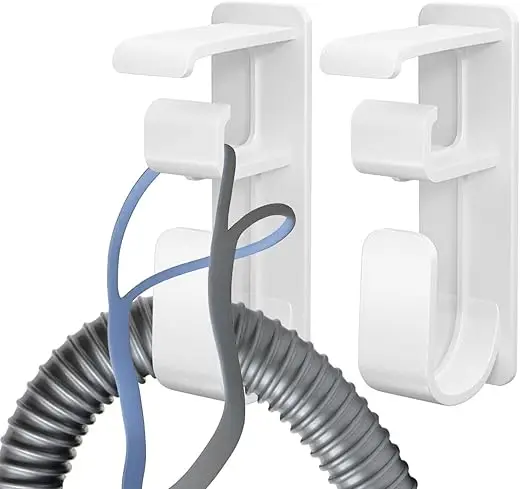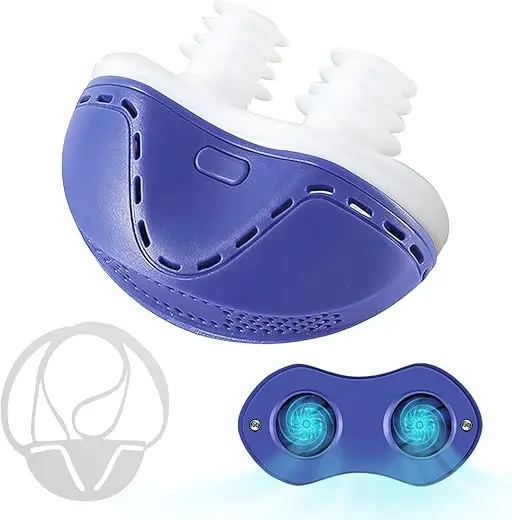Sleep is essential, yet for those with obstructive sleep apnea (OSA), restful nights are a rare luxury. OSA is a common disorder characterized by repeated interruptions in breathing during sleep, often due to the collapse of soft tissue at the back of the throat. Obesity is a significant risk factor for OSA, complicating treatment options and making management a priority for many patients.
Traditional treatments, such as Continuous Positive Airway Pressure (CPAP), lifestyle changes, and surgery, have proven effective but are not always suitable or successful for everyone. Enter Zepbound, a medication initially developed for weight management, which has shown promise as a supplementary treatment for OSA due to its unique mechanism of action. As researchers explore the link between weight loss and OSA symptoms, Zepbound could offer a novel approach to tackling this sleep disorder.
This article delves into the intersection of Zepbound and weight loss in the management of OSA, examining its potential benefits, integration with existing treatments, and considerations for patient suitability. As we unravel the complexities and potentials of Zepbound, we consider its place in the evolving landscape of OSA treatments, alongside ongoing research and developments in the field.
Understanding Obstructive Sleep Apnea (OSA)
Obstructive sleep apnea (OSA) is a sleep disorder where the upper airway repeatedly collapses during sleep. This causes breathing interruptions. Signs of OSA include loud snoring, fatigue, and excessive sleepiness during the day. People may also experience morning headaches, restless sleep, and irritability.
A major risk factor for OSA is obesity. Extra body weight increases pressure on the airway, making it more prone to collapse during sleep. This increases the frequency of obstructive episodes.
Symptoms of OSA:
- Loud snoring
- Fatigue
- Morning headaches
- Restless sleep
- Irritability
Zepbound is a medication that aids in weight loss. It has been shown to improve sleep quality for those with moderate-to-severe OSA. Weight reduction can lessen the occurrence of breathing interruptions. Combining Zepbound with a reduced-calorie diet and physical activity may enhance its benefits.
In summary, managing body weight can significantly ease OSA symptoms. Weight loss medications like Zepbound offer promising results. Improved sleep quality can enhance overall well-being for individuals affected by this condition.
The Link Between Obesity and OSA
Obstructive sleep apnea (OSA) is a serious sleep disorder where the upper airway gets blocked during sleep. This can cause breathing disruptions and poor sleep quality. One major risk factor for OSA is obesity. Excess fatty tissue around the neck and upper airway can lead to blockages, stopping breathing several times each night.
Key Contributors to OSA in Obesity:
- Excess Fatty Tissue: Increases airway blockage.
- Thick Tongue and Neck: Adds to airway collapse or obstruction.
Weight loss plays a crucial role in managing OSA symptoms. Treating OSA often requires lifestyle changes such as a reduced-calorie diet and increased physical activity. In December 2024, the FDA approved Zepbound (terzeptide) for treating moderate-to-severe OSA in obese adults. This weight loss medication, when combined with lifestyle changes, can help improve sleep apnea symptoms.
Zepbound works best alongside a healthy lifestyle. Effective management may include regular exercise and a balanced diet, improving both weight and breathing. Addressing obesity not only helps reduce OSA but also lowers the risk of related health issues like high blood pressure and type 2 diabetes.
Traditional OSA Treatments
Obstructive sleep apnea (OSA) is a condition where breathing repeatedly stops during sleep. Traditional treatments focus on preventing airway blockages. The most common of these treatments is the continuous positive airway pressure (CPAP) machine. Some individuals with OSA may need to combine CPAP therapy with medications like Zepbound. Insurance companies often require trying these traditional methods before approving new therapies. Using CPAP alongside medications can result in better outcomes for OSA symptoms. Clinical evidence suggests that this combination might offer superior relief compared to using treatments independently.
Continuous Positive Airway Pressure (CPAP)
CPAP therapy is the leading treatment for obstructive sleep apnea. It involves a machine that keeps the airway open by providing constant air pressure through a mask. Many patients notice significant reductions in breathing interruptions with CPAP. Some people find even better results when combining CPAP with medications like Zepbound. This combination has led to reductions in apnea symptoms and more effective weight loss. Using both treatments may provide more comprehensive management of OSA. While some insurance plans require CPAP before approving Zepbound, their combined use might offer enhanced patient benefits.
Lifestyle Modifications
Effective management of obstructive sleep apnea involves lifestyle changes. For those using Zepbound, a reduced-calorie diet is essential. Physical activity can also help in managing OSA by decreasing the body weight that puts pressure on the airway muscles. Even modest weight loss can improve breathing during sleep. Integrating traditional therapies like CPAP with weight loss medication can further aid in symptom reduction. By adopting a healthier lifestyle alongside medication, patients can achieve better results in managing OSA. It’s essential to see these lifestyle modifications as a vital component of any treatment plan.
Surgical Options
For some, surgery may be a necessary step in managing obstructive sleep apnea. Surgical procedures can include the removal of excess throat tissue. This is often more invasive than lifestyle changes or medications like Zepbound. In certain cases, upper airway surgery becomes an option when non-invasive treatments offer insufficient relief. The choice between surgical and non-surgical options depends on the individual’s condition and contributing factors like obesity. Surgery can be an effective alternative for those who do not benefit enough from CPAP or lifestyle adjustments, providing a tailored approach to treating OSA.
Introduction to Zepbound
Zepbound is a medication initially developed for weight loss that also helps treat sleep apnea, particularly in those linked with obesity. The Food and Drug Administration (FDA) approved Zepbound for adults with moderate to severe obstructive sleep apnea (OSA), defined as having more than 15 apnea events per hour. Two randomized, controlled studies involving 469 participants demonstrated that using Zepbound for one year led to weight loss and a reduction in sleep apnea symptoms. The weight loss achieved through Zepbound can reduce pressure on the airway muscles, potentially alleviating symptoms of obstructive sleep apnea. Zepbound targets glucagon-like peptide-1 (GLP-1) and Gastric inhibitory polypeptide (GIP) receptor agonists, hormones that help decrease appetite.
Mechanism of Action
Zepbound works by targeting two critical hormones, GIP and GLP-1. These hormones play a significant role in regulating appetite and metabolism. Zepbound activates receptors in the brain areas that control hunger and fullness, helping users feel less hungry. By reducing hunger and overall food intake, Zepbound supports long-term weight loss. This weight loss is essential for mitigating the underlying causes of OSA. The mechanism involves reducing fat accumulation around the upper airway. This reduction potentially improves breathing and decreases OSA symptoms during sleep. Clinical studies indicated that Zepbound could lead to significant fat loss. The reduction in fat improves airflow during sleep, addressing OSA issues effectively.
Clinical Trials and Effectiveness
Zepbound, alongside Mounjaro, underwent evaluation in clinical trials to assess its effectiveness in reducing obstructive sleep apnea symptoms among individuals with obesity. In these trials, participants received weekly injections of tirzepatide. After 52 weeks, there was an average reduction of 27.4 apnea episodes per hour compared to a placebo. The SURMOUNT-OSA Phase 3 global studies targeted 469 participants with moderate-to-severe obstructive sleep apnea and obesity. These studies included participants unable or unwilling to use positive airway pressure (PAP) therapy. The FDA approved Zepbound based on data from two phase 3 clinical trials. It stands as the first pharmaceutical treatment for moderate-to-severe obstructive sleep apnea in people with obesity. Participants in these trials ranged in age from 20 to 79, with most being male, and the studies focused on individuals without type 2 diabetes.
Zepbound as a Supplementary Treatment for OSA
Zepbound, which contains the active ingredient tirzepatide, was approved by the FDA in December 2024. It is specifically for adults with obesity who have moderate to severe obstructive sleep apnea (OSA). As a unique semaglutide GLP-1 agonist, Zepbound stands out as the only weight loss medication approved for treating OSA in such cases. Clinical trials have shown positive results, with Zepbound and another tirzepatide-based medication, Mounjaro, reducing apnea and hypopnea events during sleep. On average, patients using Zepbound reported losing 45 to 50 pounds. This weight loss is crucial for maintaining the benefits of OSA treatment. To achieve the best outcomes, lifestyle changes, like a reduced-calorie diet and increased physical activity, should accompany Zepbound’s use.
Integration with Traditional Treatments
Zepbound acts as a weight loss medication but is now recognized as part of a broader treatment plan for those with obstructive sleep apnea and obesity. Specialists recommend its use, especially for individuals who struggle with or prefer not to use CPAP machines. Zepbound’s FDA approval specifically focuses on treating adults with obesity who have moderate-to-severe OSA. Clinical trials indicate that Zepbound can lead to substantial weight loss and improvements in sleep apnea symptoms.
The integration of Zepbound into OSA treatment highlights the strong link between weight management and the success of sleep disorder therapies. Weight loss helps in reducing airway blockages, which is crucial for alleviating OSA symptoms. By losing weight, patients often notice fewer episodes of disrupted breathing during sleep, resulting in better sleep quality and overall health.
This combined approach with traditional methods emphasizes the importance of managing body weight for more effective OSA treatment outcomes. It allows patients to experience significant health improvements, even if they have struggled with traditional CPAP therapy.
Potential Benefits for Patients
Zepbound offers promising improvements for those with obstructive sleep apnea (OSA) by aiding significant weight loss. Weight loss can reduce airway blockages, alleviating OSA symptoms. Research indicates that Zepbound may reduce the severity of sleep apnea, with some patients experiencing remission. This medication is designed to slow digestion and increase feelings of fullness, which supports weight loss and helps manage OSA more efficiently.
Zepbound is notable because it is the first FDA-approved weight loss medication for adults with both obesity and moderate-to-severe obstructive sleep apnea. Patients using Zepbound can expect substantial benefits, often averaging 18-20% body weight loss, translating to about 45-50 pounds. These outcomes not only improve sleep apnea symptoms but also enhance overall health.
By effectively reducing the apnea-hypopnea index, Zepbound helps in minimizing breathing disruptions during sleep. This leads to better sleep quality and lowers the risk of related health issues like heart disease and elevated blood pressure. Amidst these benefits, Zepbound remains a unique option for those struggling to manage their OSA through traditional methods alone.
Assessing Patient Suitability for Zepbound
Zepbound is a medication approved by the Food and Drug Administration (FDA) to aid in weight loss. It is particularly useful for adults with obesity who also suffer from moderate-to-severe obstructive sleep apnea (OSA). When paired with continuous positive airway pressure (CPAP) therapy, Zepbound can lead to significant weight loss and improved sleep. However, Zepbound is not for everyone. Physicians evaluate patients carefully before prescribing this medication, considering factors such as obesity and the severity of OSA. Other treatment options might include oral appliances or surgeries. To see the best results, it is vital to combine Zepbound with a reduced-calorie diet and increased physical activity. This holistic approach ensures that patients not only lose weight but also see a reduction in OSA symptoms.
Evaluating Medical History
Understanding a patient’s medical history is crucial in predicting how they might respond to Zepbound. Medical providers look at how much excess weight a patient carries, as obesity often worsens sleep apnea symptoms. They also check for conditions like type 2 diabetes, which might alter treatment strategies. Physicians assess previous medical records to identify any past reactions to weight loss medications or interventions. Breathing issues and other sleep disorders are also checked as they might offer clues to the severity of the patient’s sleep apnea. A comprehensive look at a patient’s past health can inform the best course of action while prescribing medications like Zepbound.
Considering Insurance Coverage
Insurance coverage plays a significant role in whether patients can afford Zepbound. Some insurers, like Tricare and Blue Cross Blue Shield, already cover Zepbound for weight loss. However, the same cannot be said for its use in treating sleep apnea. Patients might need to try other treatments like CPAP therapy first. Even if a doctor prescribes Zepbound, insurance might not cover it due to its current non-approval for sleep apnea. Patients should contact their insurance companies directly to confirm coverage. This information is crucial for avoiding unexpected out-of-pocket expenses and understanding financial responsibilities before starting the medication.
Monitoring for Side Effects
Side effects are a common concern when taking prescription medications like Zepbound. Users might experience mild to moderate gastrointestinal issues such as nausea, diarrhea, vomiting, or stomach pain. Over time, these issues often decrease as the body adjusts. Other side effects like fatigue and reactions at the injection site may also occur. It’s important to follow the prescribed dosage to minimize these risks. Communication with healthcare providers about any persistent or troubling side effects is essential. They can offer guidance on whether adjustments need to be made to the treatment plan. This ensures that the medication’s benefits outweigh its drawbacks in managing weight and sleep apnea symptoms.
Potential Risks and Side Effects of Zepbound
When considering Zepbound, it’s important to be aware of potential risks and side effects.
Common Side Effects:
- Gastrointestinal issues such as nausea, diarrhea, vomiting, constipation, and stomach pain.
- Injection site reactions.
- Fatigue and allergic reactions.
- Belching, hair loss, and heartburn.
It’s advisable to inform healthcare providers if you are undergoing surgery, as Zepbound may increase the risk of food entering the lungs during procedures.
Drug Interactions:
- Do not combine Zepbound with other tirzepatide-containing products or GLP-1 receptor agonist medicines.
In animal studies, Zepbound has been linked to thyroid C-cell tumors in rats, though it’s unclear if this risk extends to humans.
It’s important to weigh these risks along with potential benefits. Always discuss with your healthcare provider before starting any new medication.
Future Research and Developments in OSA Treatments
Future research in obstructive sleep apnea (OSA) is paving the way for new treatments. The SURMOUNT-OSA Phase 3 studies, with 469 participants, have shown promising results for Zepbound, a medication specifically targeting weight reduction in those with obesity and moderate-to-severe OSA.
Here are some areas of interest for future research:
- Non-Invasive Treatments: Exploring therapies that don’t rely on positive airway pressure could benefit those unable or unwilling to use traditional methods.
- Medication Impact: Understanding how weight loss drugs improve OSA symptoms can lead to integrated treatment approaches.
- Diverse Populations: Future studies might explore the effects of Zepbound on different groups, including varying obesity levels and those without type 2 diabetes.
Table: Areas of focus for future OSA research
| Focus Area | Potential Benefits |
|---|---|
| Non-Invasive Treatments | Options for those avoiding positive airway pressure |
| Medication Impact | Integrated methods for treating OSA |
| Diverse Populations | Broadened applicability and safety of medications |
By expanding research, we can better understand Zepbound and similar drugs. This could lead to more effective treatments for OSA.
Conclusion: The Role of Zepbound in Managing OSA
Zepbound® (tirzepatide) is a groundbreaking medication approved by the FDA for managing moderate to severe obstructive sleep apnea (OSA) in adults with obesity. This dual-function medication aids significant weight loss, averaging 18-20% of body weight reduction, which plays a crucial role in easing OSA symptoms.
Zepbound showcases enhanced effectiveness when paired with a reduced-calorie diet and increased physical activity. Clinical trials like the SURMOUNT-OSA Phase 3 studies highlight its success, especially for those unable or unwilling to use positive airway pressure therapy.
Benefits of Zepbound:
- Weight Loss: Average loss of 18-20% body weight.
- Improved OSA Symptoms: Dual benefits in weight reduction and sleep quality.
- FDA Approved: Supported by global studies.
Zepbound acts as a comprehensive solution for managing both body weight and sleep apnea, offering hope for better health and sleep quality for many suffering from this sleep disorder. As a twin-solution medication, Zepbound integrates well with lifestyle changes, marking a new era in treating OSA and its related challenges.



